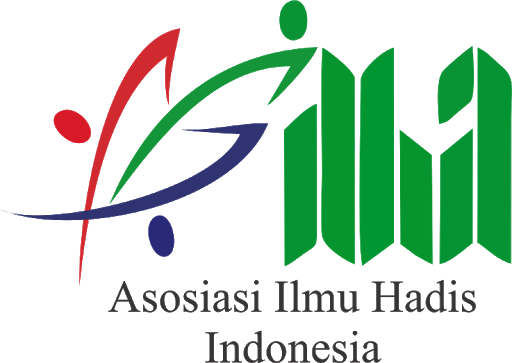Tradisi Sholawat Mansub Habib Sholeh Bin Muhsin Al-Hamid di Tempeh Tengah, Lumajang
DOI:
https://doi.org/10.14421/livinghadis.2020.2205Keywords:
Living Hadith, Tradition, Habib Sholeh, Mansub Sholawat, TawasulAbstract
Living Quran and Hadith studies are increasingly prevalent in Indonesia, the studies increasingly reveals that many traditions of society or groups are based on the Qur’an and hadith. This article focuses on the tradition of reading the sholawat mansub by Habib Sholeh bin Muhsin Al-Hamid in Tempeh Tengah Village, Tempeh District, Lumajang Regency, East Java. Shalawat mansub is a result of the spiritual journey of Habib Sholeh who met with the Prophet Khidir.Then it become a community tradition that was read every night Friday Kliwon 141 times. Then the community perpetuates the recitation of sholawat mansub as a means of tawasul to facilitate all matters. This paper aims to identify phenomenon that use Talal Asad’s theory that Islam as a discursive tradition. This research is a field research about the phenomenon of living hadith. The data used are library sources and interviews that are processed in analytic descriptive. The result of this study are the tradition of reading the blessings of Mansub as a discursive tradition that is accepted and practiced by the people of Central Tempeh, Lumajang. So that the hadiths related to this phenomenon are presentedas a form of text that intermediate human's approach to Allah Swt.
 Abstract viewed: 2277 times
|
Abstract viewed: 2277 times
|
 PDF downloaded = 6840 times
PDF downloaded = 6840 times
References
Abu Dawud, Sulaiman bin al-As’at. Tt. Sunan Abi Dawud, Beirut: al-Maktabah al-‘Asriyah, Juz 4, 144
Al-Bukhari. 1422. Sahih Bukhari. Damaskus: Dar Tuq al-Najah, Juz 4, 156.
Asad,Talal. 2009. “The Idea of an Anthropology of Islam, dalam Qui Parle, Vol 17, No. 2 (Spring/Summer 2009)
Berger, Peter L., and Thomas Luckmann. 1996. The Social Construction of Reality: A Treatise in The Sociology of Knowledge, USA: Penguin Books.
Bukhari, Akh. 2017. “Prevesing Arab Tradition: The Cultural Expression of Habsyian in East Kalimantan”, Journal of Indonesian Islam.
Dermawan, T Agus. 1981. Lorong-lorong Istana Presiden, Jakarta: Kepustakaan Populer Gramedia.
Dewi, Subkhani Kusuma. 2016. “Otoritas Teks Sebagai Pusat dari Praktik Umat Islam”, Jurnal Living Hadis, Vol. 1, No. 1.
Hak, Nurul. 2016. “Rekontruksi Historiografi Islamisasi dan Penggalian Nilai-nilai Ajaran Sunan Kalijaga” Analisis Vol. XVI No. 1, 75-76
Ibrahim, Anisa, Zulkipli and Ipong Niaga. 2014. “Tradisi Samrah Pada Pesta Pernikahan Oleh Keturunan Arab di Kelurahan Limb B Kecamatan Kota Selattan”, Fakultas Sastra dan Budaya.
Jamalie, Zulfa. 2016. ”Maarak Kitab Bukhari” Traditon in Banjar Community’, El-Harakah (Terakreditasi).
Jati, Wasisti Raharjo. 2012. “Tradisi, Sunnah dan Bid’ah: Analisa Barzanji Dalam Perspektif Cultural Studies”, dalam El-Harakah, Vol. 14. No. 2.
Kadir al-Habsyi, Abdul. Tt. Manaqib al-Habib Sholeh bin Muhsin al-Hamid, Jember, tp.
Nasiruddin al Albani, Muhammad. Sahih wa Dhaif Sunan Tirmidzi, 486
Norma Azmi, Zainal Abidin, dkk. 2019. Nasionalisme Santri (Jejak-Jejak Santri dalam Nasionalisme Indonesia), Surabaya: Lakspesdam.
R. Nangi, Charles. 2011. “Kontruksi Sosial Dalam Realitas Sosial”, dalam ASE. Vol. 7.No. 2. (Mei 2011).
Siaga, Syahrul Syah. 2006. “Fungsi dan Ciri Khas Kesenian Rebana di Pantura Jawa Tengah”, Harmonia, Vol. VII No. 3 / September-Desember 2006.
Trinatnawati, Atik. 2011. “ Masuk Angin Dalam Konteks Kosmologi Jawa”, dalam Humaniora. Vol. 23.No. 3 (Oktober 2011)
Wawancara
Wawancara dengan Suhartono (juru kunci sumur peninggalan Habib Sholeh) tanggal 30 Juli 2019 pukul 15:15
Wawancara kepada Habib Hasan (selaku cucu dari Habib Sholeh), 22 Desember 2019. 15.27
Downloads
Published
Issue
Section
License
- Authors who publish with this journal agree to the following terms:
- Authors retain copyright and grant the journal right of first publication with the work simultaneously licensed under a Creative Commons Attribution License that allows others to share the work with an acknowledgement of the work's authorship and initial publication in this journal.
- Authors are able to enter into separate, additional contractual arrangements for the non-exclusive distribution of the journal's published version of the work (e.g., post it to an institutional repository or publish it in a book), with an acknowledgement of its initial publication in this journal.
- Authors are permitted and encouraged to post their work online (e.g., in institutional repositories or on their website) prior to and during the submission process, as it can lead to productive exchanges, as well as earlier and greater citation of published work.
















